Students Reflect on National Public Health Week
As we celebrate National Public Health Week (#NPHW) April 2-6, we recognize the contributions of public health and highlight issues that are important to improving our nation.
At the University of Arizona Mel and Enid Zuckerman College of Public Health, we are dedicated to promoting the health of individuals and communities in the Southwest and globally with an emphasis on achieving health equity through excellence in education, research and service.
As part of the national This Is Public Health (#TIPH) campaign, five of our graduate students share their thoughts about what public health means to them. Read what Tara Chico, Felina Cordova-Marks, Carmella Kahn, Jennifer Richards, and Jamie Wilson have to say.
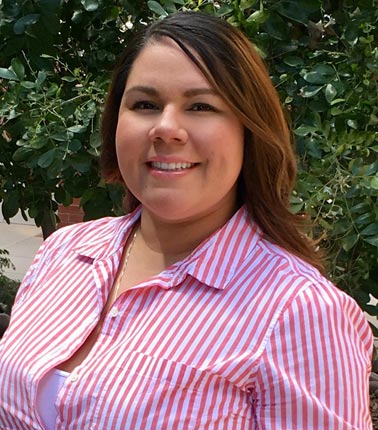
Tara M. Chico (Tohono O’odham)
Doctorate in Maternal and Child Health (DrPH) Candidate
“For me Public Health means improving the health of families and communities through health promotion and disease prevention, detection , and control through the lens of community empowerment. The communities in which we work in hold a wealth of information and knowledge that can help improve their communities. By taking a community based approach to public health, we can focus not only on the deficits from a particular community but also focus on the assets the community has to offer to improve their overall health.”
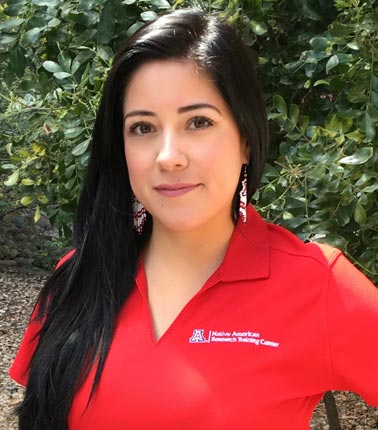
Felina Cordova-Marks (Hopi)
Doctorate in Public Health (DrPH) Candidate
“Public health is encountered everyday by everyone. It's finding balance in the environment, at our place of work, at our homes; it affects global, community and personal well-being.”
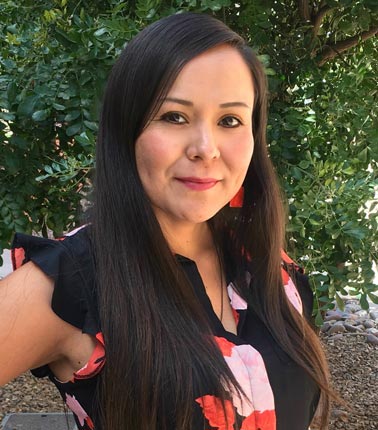
Carmella B. Kahn (Navajo)
Doctorate in Public Health (DrPH) Candidate
Bitter Water Clan and born for Folded Arms People
“I have chosen this journey because public health is more than a career or educational path. It is how we as human beings are meant to live. Our ancestors taught us to live a healthy life that is balanced and to live in harmony with our environment. Public health is continuing and protecting our teachings and worldview to ensure our communities survive and thrive. I am blessed to be part of a growing group of indigenous public health servants who have a mission to protect the health of our communities.”
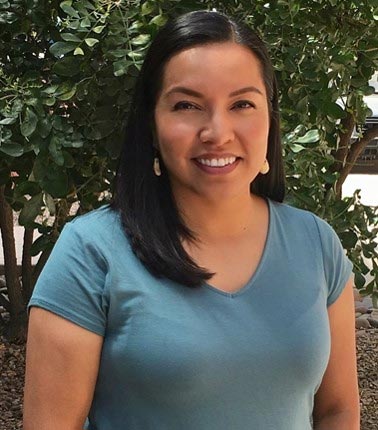
Jennifer Richards, MPH (Diné/Lakota/Taos)
Doctorate in Public Health (DrPH) Candidate, Family and Child Health
“For me, public health means developing healthy communities through a holistic, culturally-grounded approach. “Indigenizing” public health means integrating cultural factors, such as kinship and language, to improve the health of Indigenous people. While statistics often paint a dismal picture of American Indian health, we are a resilient people with many strengths. I’m a firm believe that the answer to improving our health is within our culture and community resources. As a public health researcher, I hope to draw on our strengths and apply public health skills through an Indigenous lens.”
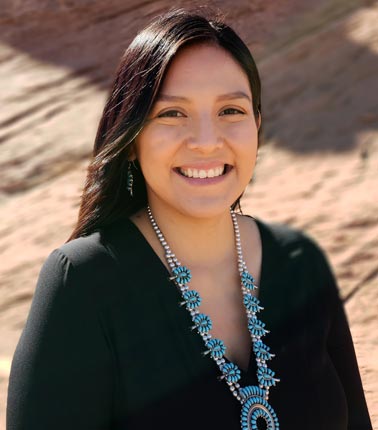
Jamie Wilson (Navajo)
Doctorate in Public Health (DrPH) Candidate, Maternal and Child Health
"As a student and researcher, public health means ensuring the equitable health of individuals and communities. This encompasses working with community members and organizations in research, policy and/or service opportunities to improve their health status. I believe that communities hold a wealth of knowledge, thus collaborating with them is essential to the sustainability and effectiveness of projects. Further, for sub-cultural groups such as tribal nations, it is important to incorporate Indigenous knowledge and worldviews into health programs and interventions to develop more culturally based health education tools and interventions. As a public health professional, it is my mission to preserve, protect, and promote health and wellness to achieve health equity."

